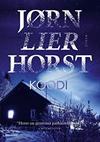
Napoleon and Wellington: The Long Duel
by Andrew Roberts | History | This book has not been rated.
ISBN: 1842124803 Global Overview for this book
ISBN: 1842124803 Global Overview for this book
Registered by UrbanSpaceman of Strasbourg, Alsace France on 4/23/2006
 This Book is Currently in the Wild!
This Book is Currently in the Wild!
 This Book is Currently in the Wild!
This Book is Currently in the Wild!
1 journaler for this copy...
Amazon Review by Christopher Hart
After his provocative Eminent Churchillians and his magisterial, award-winning Salisbury, Andrew Roberts' Napoleon and Wellington moves further back into the past to examine those titans of early 19th-century Europe. One was revolutionary, one deeply conservative. One aimed to change everything, the other aimed to achieve nothing except to stop the other changing anything. Roberts pre-empts the obvious moan regarding this well-tilled field, by pointing out that this is the first book to examine exactly what the two men thought of each other, and revealing the fascinating contradiction between what they said in public and in private. Roberts' cautious, subtle reading of character, and the narrow focus on just two men--not a mention of Rifleman Harris here--gives the book a novelistic brio. Wellington could be every bit as vainglorious as Napoleon, but Napoleon was unforgiving. Wellington saved Napoleon from execution after Waterloo, but Napoleon left money in his will to the man who had tried to assassinate the Duke. And once Napoleon had gone, Wellington amassed endless trophies of his great enemy--including not one but two of the Emperor's mistresses. Roberts' wry comment: "To sleep with one of Napoleon's mistresses might be considered an accident, but to sleep with two might suggest a pattern of triumphalism..." English readers, who have long lived with the notoriously bitchy comment from another of Wellington's mistresses, that one of their greatest national heroes was, in bed at least, "a cold fish," will be delighted to hear a second opinion from one of these ex-Imperial bed-warmers, that compared to Napoleon, Wellington was "beaucoup le plus fort". So there. Roberts is witty as well as wise, with chapter titles such as "The War for Clio's Ear". And he ends on a provocative, characteristically Euro-sceptic note: Wellington may have won at Waterloo, but today's "politically united Europe led by a centralised (French-led) bureaucracy", represents a final triumph for the Napoleonic vision... touché.
After his provocative Eminent Churchillians and his magisterial, award-winning Salisbury, Andrew Roberts' Napoleon and Wellington moves further back into the past to examine those titans of early 19th-century Europe. One was revolutionary, one deeply conservative. One aimed to change everything, the other aimed to achieve nothing except to stop the other changing anything. Roberts pre-empts the obvious moan regarding this well-tilled field, by pointing out that this is the first book to examine exactly what the two men thought of each other, and revealing the fascinating contradiction between what they said in public and in private. Roberts' cautious, subtle reading of character, and the narrow focus on just two men--not a mention of Rifleman Harris here--gives the book a novelistic brio. Wellington could be every bit as vainglorious as Napoleon, but Napoleon was unforgiving. Wellington saved Napoleon from execution after Waterloo, but Napoleon left money in his will to the man who had tried to assassinate the Duke. And once Napoleon had gone, Wellington amassed endless trophies of his great enemy--including not one but two of the Emperor's mistresses. Roberts' wry comment: "To sleep with one of Napoleon's mistresses might be considered an accident, but to sleep with two might suggest a pattern of triumphalism..." English readers, who have long lived with the notoriously bitchy comment from another of Wellington's mistresses, that one of their greatest national heroes was, in bed at least, "a cold fish," will be delighted to hear a second opinion from one of these ex-Imperial bed-warmers, that compared to Napoleon, Wellington was "beaucoup le plus fort". So there. Roberts is witty as well as wise, with chapter titles such as "The War for Clio's Ear". And he ends on a provocative, characteristically Euro-sceptic note: Wellington may have won at Waterloo, but today's "politically united Europe led by a centralised (French-led) bureaucracy", represents a final triumph for the Napoleonic vision... touché.






